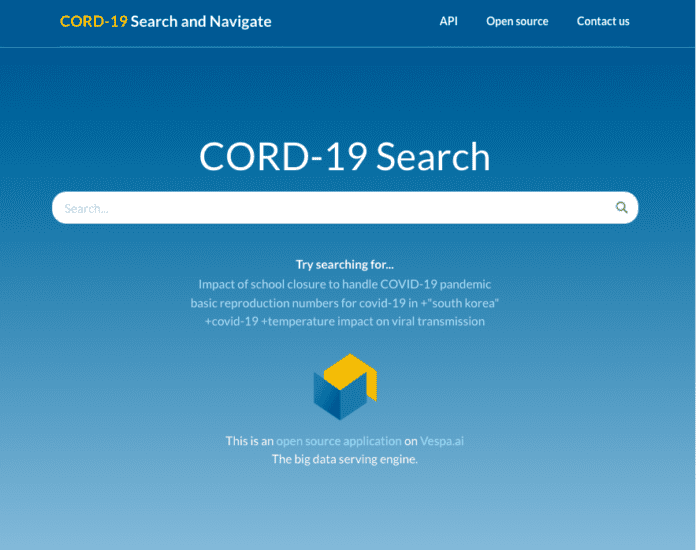The Verizon Media search engine has become a potentially life-saving COVID-19 tool
Last month, the White House unveiled its COVID-19 Open Research Data (CORD-19) initiative, an open source, big data processing program to aid treatment and vaccine research. But, as you might expect, there is already a ton of information to sort through. By working on top of the CORD-19 data set, Verizon Media’s — formerly Yahoo — Vespa search engine is helping users, and most importantly, researchers, make sense of it all.
Yahoo began development of Vespa in 2003 with the goal to generate personalized results from large data sets at massive scale in real time, making it perfect for the task at hand.
“Given our experience with big data at Yahoo (now Verizon Media) and creating Vespa (open source big data serving engine),” Kristian Aune, tech product manager at Verizon Media wrote in a blog post, “we thought the best way to help was to index the dataset, which includes over 44,000 scholarly articles, and to make it available for searching via Vespa Cloud.”
On the Vespa project website, the company explains that the search engine “allows application developers to create backend and middleware systems, which scale to accommodate large amounts of data and high loads without sacrificing latency or reliability.”
Initially, Vespa was used mostly by the company to provide users with article recommendations and to target them with ads.
Now, the search engine has become a potentially life-saving tool as it can be used to comb the entire CORD-19 repository using keywords and phrases to find full reports, allowing researchers to access information faster, possibly speeding up the discovery of a vaccine.

